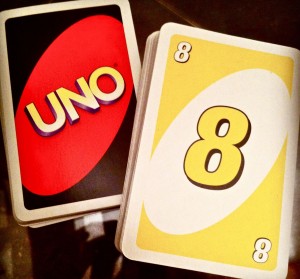by Kim Keller
Mary Clare and Marti remember how much their mom Alice loved to play games. Card games, board games, games of strategy, games of luck, Alice was always an eager participant.
The two daughters remember their mom playing bridge for years and years. Indeed, Alice was a member of two different bridge clubs, one with her friends and another with the ladies from her church, and each group would meet one night a month in each others’ homes, pair off into partners and then bid, pass, double and redouble.
Alice enjoyed playing bridge so much that it must have been terribly painful for her to realize she could no longer manage the tricky game. Alice, you see, had Alzheimer’s disease. She was 82 years old when she was diagnosed. Naturally, and yet horribly, as Alice’s disease progressed, it took away pieces of her life, bit by bit, and left her with just a shred of her former cognitive abilities.
Back when it was still in the early stages, Mary Clare and Marti asked their mom why she had stopped playing bridge, and Alice explained that the game now frustrated her. Her partners, she fretted, were seriously disadvantaged by teaming up with her because she was having trouble remembering what cards had been played.
If you can conceive how hard it is for a 40-year-old athlete to hang up his spikes, try to imagine how it feels for an 80-year-old to play her last hand of bridge.
But, despite her trouble with the complicated card game, Alice did continue to play other games that she loved, like Scrabble and dominoes. It worked for a while but it wasn’t that long before those games also became too difficult for Alice to handle. Mary Clare, Marti and their six other siblings — who affectionately referred to themselves as “Team Alice” — found that playing in teams with their mom helped ease some of her strife.
Eventually, though, they needed to replace these games as well, and find much simpler ones. They recognized that Alzheimer’s had not yet affected Alice’s ability to match colors and numbers, so they turned to games like Uno (see cards above) and a simpler version of dominoes that focuses on matching up the numbered tiles.
Uncomplicated board games like Sorry and Trouble, games we all remember from childhood, proved enjoyable for everyone, as well as Go Fish and other improvised card games that focused on Alice’s remaining skills, like matching up of suits and numbers.
It was important to Alice’s family to have active things to share with her when they visited. Alice had always enjoyed spending time with her 19 grandchildren, so games were a perfect pastime. But, more importantly, Team Alice wanted to find ways to keep their mom’s mind active and engaged for as long as they could.
Team Alice simply did not give up. They battled the ravages of Alzheimer’s with determination and creativity. No matter the problem, they just kept searching until a solution became apparent. If the doctors and researchers working on Alzheimer’s had the same kind of diligence and inventiveness that we saw from Team Alice over her last years, then maybe this merciless disease will one day be eradicated.
Kim Keller is the co-founder of In Care of Dad. She lives and works in New York City.
This blog was originally published on March 6, 2012.






